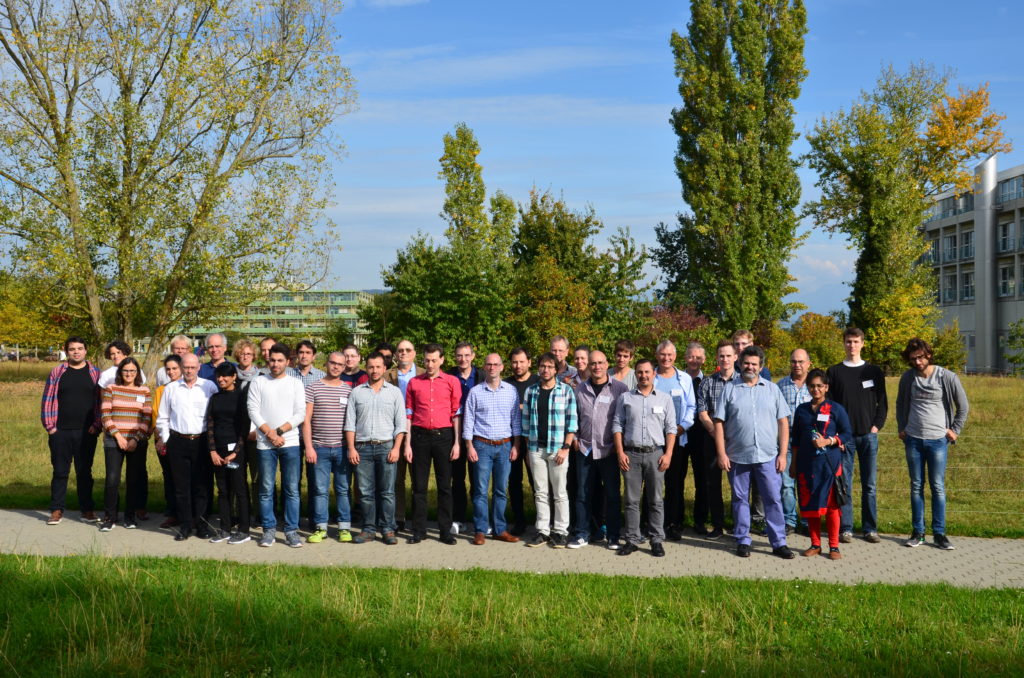CECAM/Psi-K Flagship Workshop “Light-matter interaction and ultrafast nonequilibrium dynamics in plasmonic materials”
July 18, 2022 – July 21, 2022, University of Warwick, UK
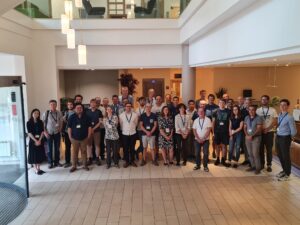
Description of Event
The Psi-K & CECAM sponsored meeting “Light-matter interaction and ultrafast nonequilibrium dynamics in plasmonic materials” was held from 18th to 21st of July 2022 at the University of Warwick. It featured 28 talks, 4 discussion sessions, and 10 posters. It was attended by 42 in-person attendees from 12 different countries and broadcast as a webinar with between 3 and 17 virtual attendees at any time.
A full theoretical description of light-matter interaction and plasmon-induced ultrafast non-equilibrium dynamics is a formidable challenge that demands an intrinsically multidisciplinary and multiscale approach. A variety of different approaches based on time-dependent Density Functional Theory, many-body perturbation theory, molecular dynamics, Mie theory, continuum electrodynamics, and combinations thereof have emerged in recent years to address many of the open questions in plasmonics. Further improvements in theoretical descriptions are crucial to optimize SPP generation and amplification in materials, to tailor losses and plasmonic lifetimes, as well as to integrate plasmonic effects into semiconductor technology to create new quantum materials. Due to the diverse aspects of this problem, a coherent research community around theoretical plasmonics is only slowly emerging.
The aim of this workshop was to assess the state of computational methods in this field, to identify major challenges, as well as to provide engagement between disparate communities to create space for cross-community collaboration. Continue reading Psi-K/CECAM Flagship workshop “Light-matter interaction and ultrafast nonequilibrium dynamics in plasmonic materials” →

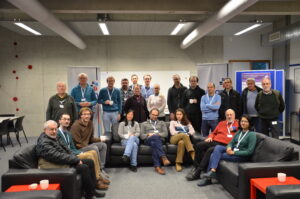
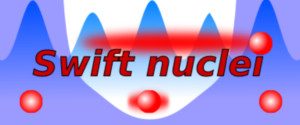
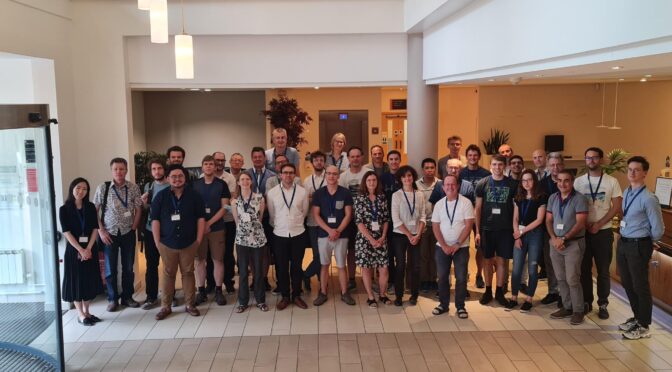

 Interface Morphology Prediction with Robust and Efficient Structure Search (IMPRESS)
Interface Morphology Prediction with Robust and Efficient Structure Search (IMPRESS)